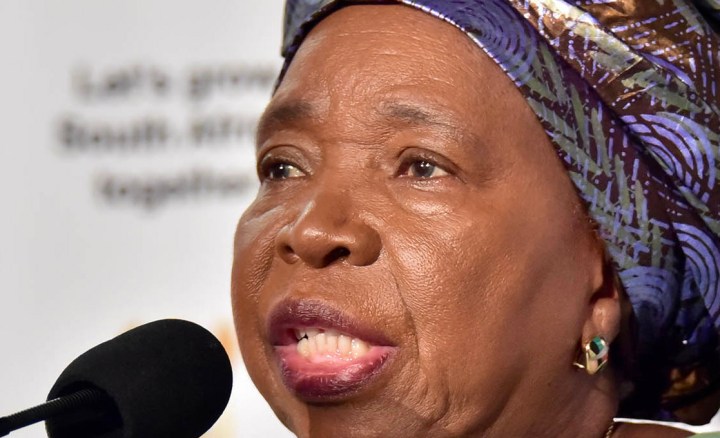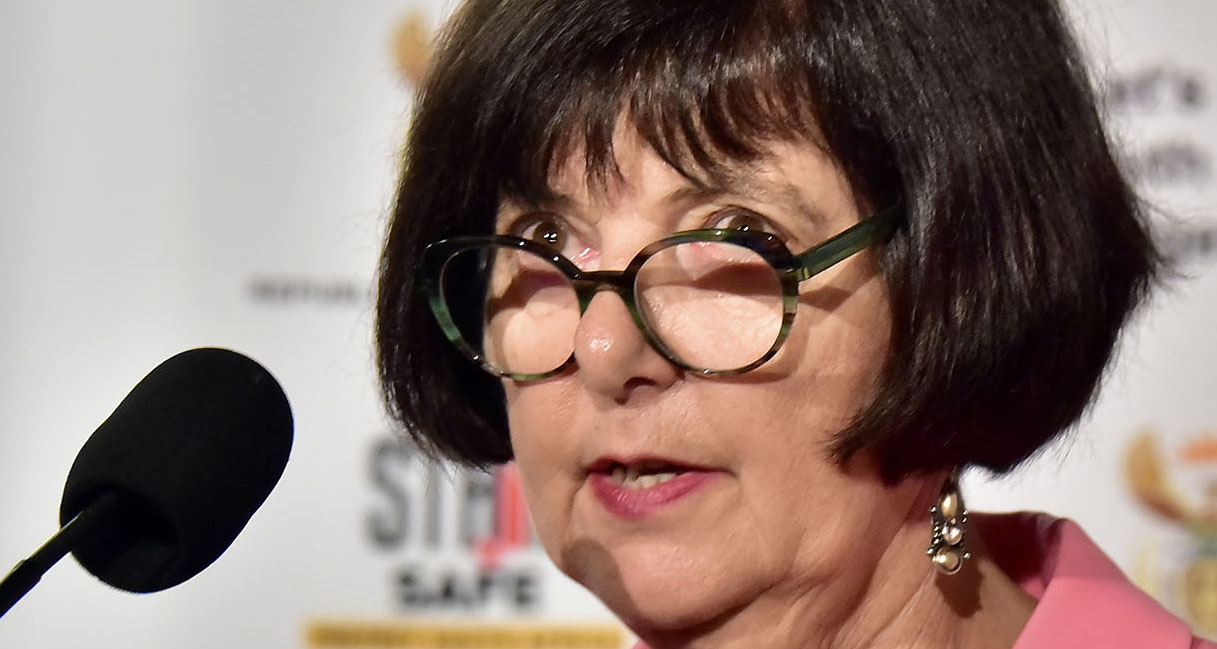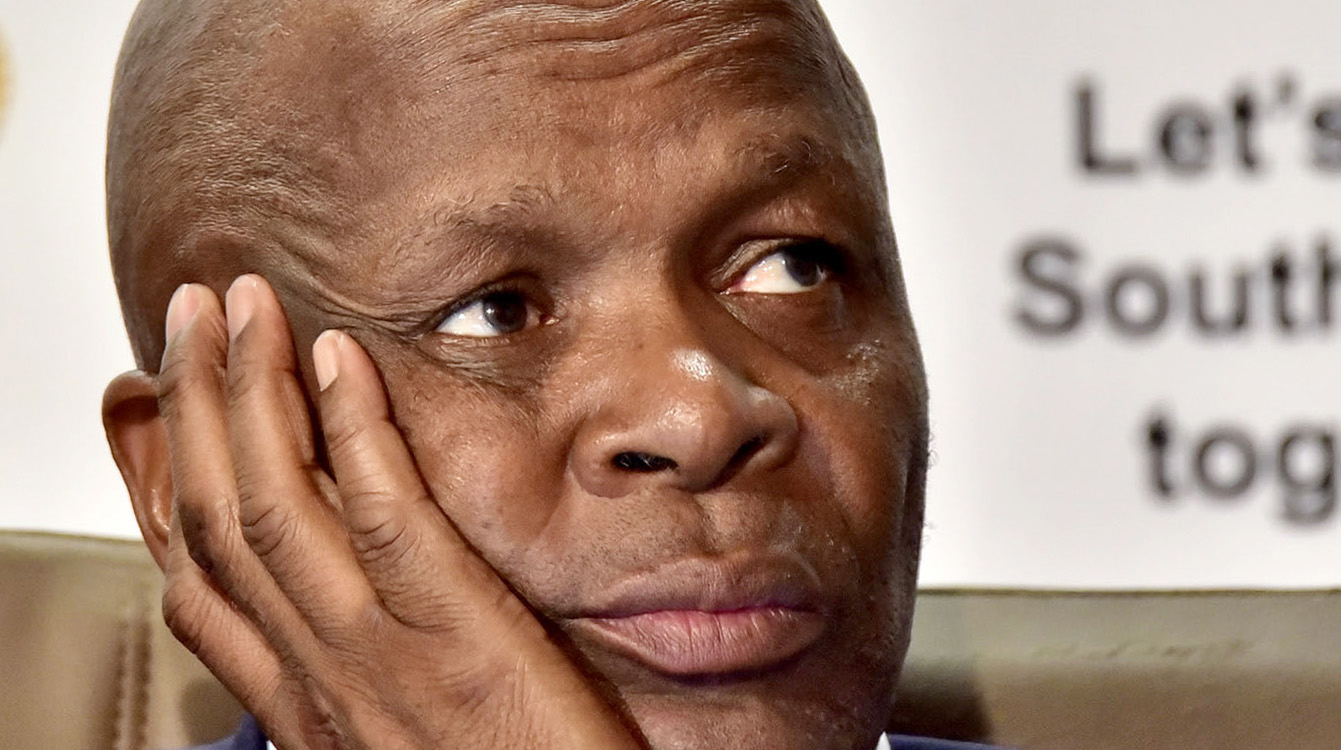STATE OF DISASTER REGULATIONS
Not all hospitals to be spared power cuts – ministers explain ‘inevitable’ new rules

Citizens are battling to keep the wheels turning amid ongoing rolling blackouts, with not a single day free of load shedding this year to date. On Friday, the government justified the declaration of a National State of Disaster as an ‘inevitable, extraordinary measure’.
The National State of Disaster on energy was “inevitable” because of the impact rolling blackouts were having on the public, Cooperative Governance and Traditional Affairs (Cogta) Minister Nkosazana Dlamini Zuma said on Friday.
The minister was speaking during a media briefing on the National State of Disaster regulations, led by herself, Minister in the Presidency Mondli Gungubele and Health Minister Joe Phaahla.
The National State of Disaster was announced by President Cyril Ramaphosa during his State of the Nation Address (Sona) on 9 February.
“Extraordinary circumstances call for extraordinary measures. The energy crisis is an existential threat to our economy and social fabric,” the President said in his speech. He called for no effort to be spared nor delay to be allowed in implementing these measures.
Read in Daily Maverick: “Four key takeaways from Ramaphosa’s State of the Nation Address”
The same day, the energy State of Disaster was declared by Dlamini Zuma, in line with the provisions of the National Disaster Management Act 57 of 2002, citing the “magnitude, severity and progression of the severe electricity supply constraint”, and the need to “prevent the possible progression to a total blackout from occurring”.
More than a fortnight after Ramaphosa’s announcement, the government finally gazetted the disaster management regulations on electricity supply constraints, after a special Cabinet sitting on 27 February.
Read in Daily Maverick: “State of Disaster statutes allows for emergency power acquisition but at expense of environment protections”
Dlamini Zuma said on Friday the declaration of the National State of Disaster “became inevitable because of the impact of load shedding on the public”. The disaster regulations were there to help minimise this impact.
How does the government plan to keep the power on in hospitals?
In terms of Section 4(b) of the regulations, all institutions within national, provincial and local spheres of government must, within their available resources, ensure the continuous operation of health facilities, water and other essential infrastructure, by installing alternative energy sources or other measures to provide uninterrupted power supply.
The Department of Health gave Eskom a list of 213 hospitals to be considered for possible exclusion, but only 76 of them have been exempted from blackouts (26 directly supplied by Eskom and 50 by municipalities).
These 213 hospitals are the “priority” and “should ultimately be exempted”, said Health Minister Joe Phaahla, adding that this doesn’t mean the remaining health facilities in the country are unimportant.
“We have an outstanding 137 hospitals of that 213 which are still not exempted,” he said. “Our teams have been working together with Eskom to look at expanding the number of facilities which can be exempted.”
Phaahla explained that 46 of the outstanding 137 hospitals are supplied by Eskom, and were not exempted because the “cables which are going into those health facilities are intertwined with community supply lines”. Exempting them from Eskom power cuts would require separate lines to be installed.
That installation, Phaahla said, would cost an estimated R356,358,000.

Environment Minister Barbara Creecy. (Photo:Ntswe Mokoena / GCIS)
The health minister couldn’t provide concrete timelines for when the process of exempting these 137 hospitals would be complete, but said the department is working on a detailed business plan which should be ready by the end of March.
Daily Maverick has reported extensively on the impact of rolling blackouts on South Africa’s health facilities and medical personnel and their efforts to keep patients alive in the face of crippling power cuts.
Read in Daily Maverick:
“Rolling blackouts and the daily horror story faced by healthcare workers”
However, Phaahla said that in terms of the reports the department has received on health facilities, “there has not been a very direct link between deaths in facilities – whether in theatres or ICUs – [and] the breakdown of electricity”.
He maintained that this was thanks to generators kicking in at “most” facilities.
Although Phaahla seemed to deny that the situation has led to the loss of life, Dlamini Zuma said the disaster regulations are also in place to “ensure that we can save lives”.
“If there’s load shedding, for instance in an antenatal unit, and there are babies in incubators, you can imagine what can happen. That’s why the regulations emphasise the issue of ensuring that the health infrastructure is exempted.”
Emergency procurement procedures
The disaster regulations enable emergency procurement procedures in line with the Public Finance Management Act, Municipal Finance Management Act and Preferential Procurement Policy Framework Act.
On Friday, Dlamini Zuma reiterated that, in drafting the regulations, the Cogta has “tried to ensure that the use of emergency procurement is not abused”.
The regulations made provisions for the Auditor-General (AG) to conduct real-time audits, and “report on the accounts, financial statements and financial management of all emergency procurement undertaken during the national state of disaster”.
Accounting officers would also need to report to Parliament on any procurement undertaken using the emergency provisions, within the month of the expenditure.

Minister in the Presidency Mondli Gungubele. (Photo: Ntswe Mokoena / GCIS)
“That is how we are trying to stop what happened [during the Covid-19 State of Disaster],” said Dlamini Zuma.
“People will know that they have to account to the nation, because if you report to Parliament you are accounting to the nation… where questions will also be asked,” she said.
Environmental regulations
The disaster regulations make provision for Environment Minister Barbara Creecy to issue directions around streamlining the application and decision-making processes for environmental authorisations, waste management licences and atmospheric emission licences associated with energy infrastructure and generation during the State of Disaster period.
Additionally, the country’s deteriorating energy infrastructure that needs to be upgraded, refurbished or repaired will be excluded from the provision of the National Environmental Management Act or any environmental management act for the duration of the State of Disaster.
“We are looking at developing directions that would enable expedited procedural requirements for requiring environmental authorisation,” Creecy said on Friday.
“For example, allowing a process to be followed that is similar to the current basic assessment process – even for activities that may otherwise require the full scoping Environmental Impact Assessment (EIA) process… Shorter periods between the submission of an application and the submission of reports for decision-making.”
In other words, everything regarding the State of Disaster that requires an EIA would go “to the front of the queue”, said Creecy, “so that it could be processed faster”.
Creecy’s department was also looking at shortening the public participation period from 30 days to 14.
Crucially, the disaster regulations do not provide for exemptions from environmental law, she said, and it was not the “intention” of the department “to start producing blanket exemptions from those provisions”.
“There may be certain instances where this is required and on a case-by-case basis we would be advised by our legal practitioners how best to deal with that situation.”
When will the minister of electricity be announced?
“Very soon,” was all Gungubele had to say in response to that question on Friday.
Ramaphosa announced his Sona speech last month that he would expand his Cabinet by appointing a minister of electricity in the Presidency. The minister would be responsible for overseeing all aspects of the electricity crisis response, including the work of the National Energy Crisis Committee.
The country has been waiting with bated breath for Ramaphosa to announce the changes he would be making to his Cabinet. On Wednesday, Presidency spokesperson Vincent Magwenya told the media it was only a “matter of days” before the announcement. Head of Infrastructure in the Presidency Kgosientsho Ramokgopa is the forerunner for the position, Daily Maverick’s Queenin Masuabi reported.
Track the frequency of load shedding over the years with this tool from The Outlier here:
How long will the National State of Disaster last?
A National State of Disaster lasts three months from when it is declared. However, the cooperative governance minister may cut it short at any time by notice in the Government Gazette. It may also be extended for one month at a time. DM

















 Become an Insider
Become an Insider
The pic of DZ says it all.
I am stocking up on booze and smokes. When Dlamini ban it she is going to say it use to much electricity to maufacture.
Lebanon beware … you have competition coming your way ! With love from the ANC cartel and cadres in SA .
Watch NDZ try to use this to enforce an NHI; restrict power supply to only the chosen few who supply health services to existing, or would-be ANC members.
Far-Fetched? Then you haven’t peered into her lizard-like, Kremlin-controlled mind ….
The declaration of the national state of disaster is an admission of failure by the government in dealing with the electricity crisis they visited upon this country. The ANC that has total responsibility for this criminality has now to be laying charges against every South African that regards the party as criminally liable for the darkness that they have plunged the country in. The only thing is that as South Africans we do not get easily threatened including by criminals instead we have a reputation to fight and fight we will.
The disaster regulations clearly show that the state of national disaster was really not necessary but was declared to address the incompetence by a President who cannot deal with his Ministers and inability to coordinate the work that Cabinet has to do to address the crisis. This is a disaster in itself that must be declared on the government that fails to act as a collective in terms of the constitution. More importantly, it is an indictment once more on a parliament that has a notoriety for failure to hold the government to account. This parliament refused to hold the executive to account during Covid through the permanent Deputy Speaker.
It has now once more failed to discharge its constitutional mandate to hold the executive to account but has become an arm of the executive for failure to get to
the bottom of the real reason of the state of disaster. It must be dissolved as a matter of urgency like the Makhanda Council.
This is simply a measure to squeeze the last out of the sponge called South Africa-the lead into a second Somalia?
The new normal : the ANC will change loadshredding from everybody treated the same to select institutions and companies are exempt. Hospitals and airports are one thing, but whereas I must run diesel, in Centurion for example SITA does not get shed (and the people on their network node). Senior government housing complexes are exempt.
How long before selected companies are deemed more important and exempt?